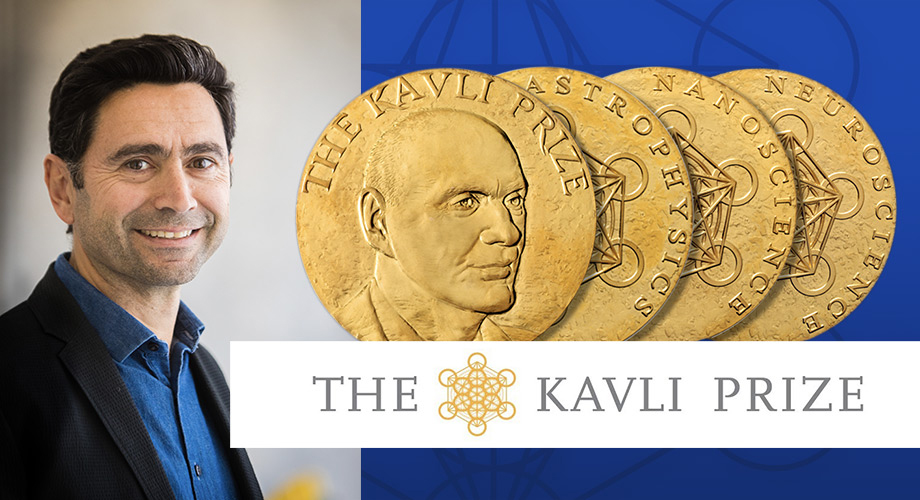
Ardem Patapoutian of Scripps Research honored with 2020 Kavli Prize in Neuroscience
Patapoutian is recognized for his transformative discovery of proteins that help our bodies sense pressure.
May 27, 2020
LA JOLLA, CA — Scripps Research Professor and neurobiologist Ardem Patapoutian, PhD, has been awarded the 2020 Kavli Prize in Neuroscience, a prestigious distinction presented by The Norwegian Academy of Science and Letters, The Norwegian Ministry of Education and Research and The Kavli Foundation.
The announcement came early today during the World Science Festival in New York, where Kavli Prize winners also were named in the fields of astrophysics and nanoscience.
Patapoutian shares the neuroscience award—which includes a prize of $1 million—with co-winner David Julius, PhD, of University of California, San Francisco. Patapoutian and Julius are recognized for their fundamental discoveries of the molecular mechanisms of touch, temperature and pain.
With today’s pronouncement, Patapoutian becomes the first Scripps Research scientist to win The Kavli Prize.
“Scripps Research sincerely congratulates Ardem on this prestigious award for his groundbreaking discoveries that have greatly expanded our understanding of the sensory nervous system,” says Peter Schultz, PhD, President and CEO of Scripps Research. “The Kavli Prize recognizes remarkable contributions to science, and that certainly describes Ardem’s work.”
Patapoutian discovered pressure-sensitive proteins, PIEZO1 and PIEZO2, that enable the sense of touch and underlie the function of many other tissues and cell types. This key discovery a decade ago has led to new findings that shed light on how to treat a variety of diseases, from heart failure to chronic pain. While the most impactful applications today deal with human health, the proteins Patapoutian discovered are highly conserved throughout the animal kingdom and are essential of pressure sensing in all mammals. They affect red blood cell volume, vascular physiology and underlie a broad range of human genetic disorders.
The Kavli Prize committee notes that while the body’s mechanisms for sensing taste and light had been described, a molecular basis for how temperature and pressure are detected and encoded into electrical signals had been lacking before the discoveries of Patapoutian and Julius.
Patapoutian’s discoveries “opened the door to understanding mechanobiology, an emerging field of science that intersects biology, engineering and physics,” the Kavli Prize committee says. Mechanobiology focuses on how physical forces and changes in the mechanical properties of cells and tissues contribute to health and disease.
Patapoutian earned his doctorate in biology from the California Institute of Technology in 1996 and joined the Scripps Research faculty in 2000 after completing a postdoctoral fellowship at University of California, San Francisco. In 2017, he was named to the National Academy of Sciences. He has received many other honors and awards spanning two decades, including the 2019 Rosenstiel Award for Distinguished Work in Basic Medical Research (also with David Julius). In addition to his work at Scripps Research, Patapoutian serves as an investigator at the Howard Hughes Medical Institute.
The Kavli Prize Laureates are selected by The Norwegian Academy of Science and Letters and are traditionally celebrated in Oslo, Norway, in a ceremony presided over by the Royal Family, where they receive gold medals for their achievements. Due to the COVID-19 pandemic, this year’s award ceremony is postponed and will be held together with the 2022 award ceremony in September 2022.
For more information on all of this year’s Kavli Prize winners, visit kavliprize.org.
For more information, contact press@scripps.edu

